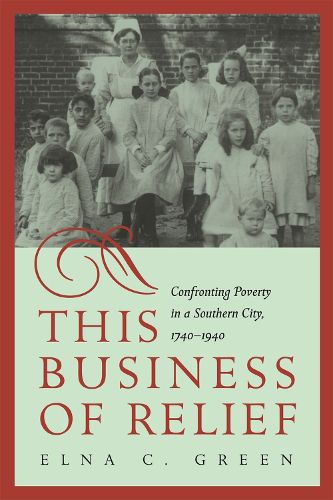Readings Newsletter
Become a Readings Member to make your shopping experience even easier.
Sign in or sign up for free!
You’re not far away from qualifying for FREE standard shipping within Australia
You’ve qualified for FREE standard shipping within Australia
The cart is loading…






The South has been largely overlooked in the debates prompted by the wave of welfare reforms during the 1990s. This book helps correct that imbalance. Using Richmond, Virginia, as an example, Elna C. Green looks at issues and trends related to two centuries of relief for the needy and dependent in the urban South. Throughout, she links her findings to the larger narrative of welfare history in the United States. She ties social-welfare policy in the South to other southern histories, showing how each period left its own mark on policies and their implementation - from colonial poor laws to homes for children orphaned in the Civil War to the New Deal’s public works projects.
Green also covers the South’s ongoing urbanization and industrialization, the selective application of social services along racial and gender lines, debates over the
deserving
and
undeserving
poor, the professionalization of social work, and the lasting effects of New Deal money and regulations on the region.
This groundbreaking study sheds light on a variety of key public and private welfare issues–in history and in the present, and in terms of welfare recipients and providers.
$9.00 standard shipping within Australia
FREE standard shipping within Australia for orders over $100.00
Express & International shipping calculated at checkout
The South has been largely overlooked in the debates prompted by the wave of welfare reforms during the 1990s. This book helps correct that imbalance. Using Richmond, Virginia, as an example, Elna C. Green looks at issues and trends related to two centuries of relief for the needy and dependent in the urban South. Throughout, she links her findings to the larger narrative of welfare history in the United States. She ties social-welfare policy in the South to other southern histories, showing how each period left its own mark on policies and their implementation - from colonial poor laws to homes for children orphaned in the Civil War to the New Deal’s public works projects.
Green also covers the South’s ongoing urbanization and industrialization, the selective application of social services along racial and gender lines, debates over the
deserving
and
undeserving
poor, the professionalization of social work, and the lasting effects of New Deal money and regulations on the region.
This groundbreaking study sheds light on a variety of key public and private welfare issues–in history and in the present, and in terms of welfare recipients and providers.